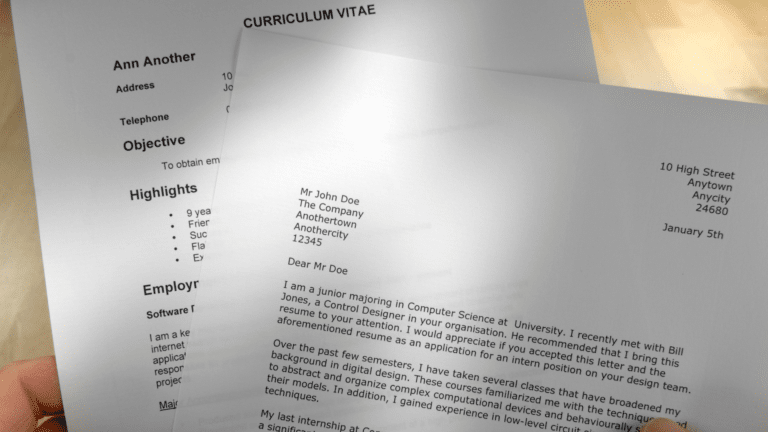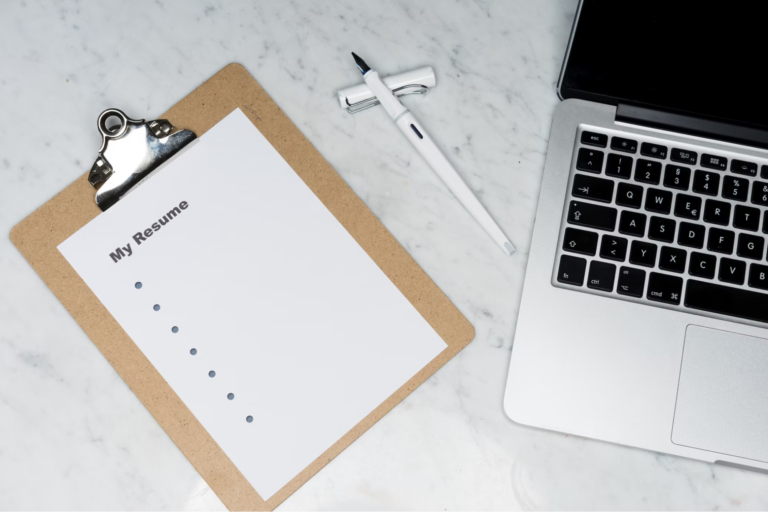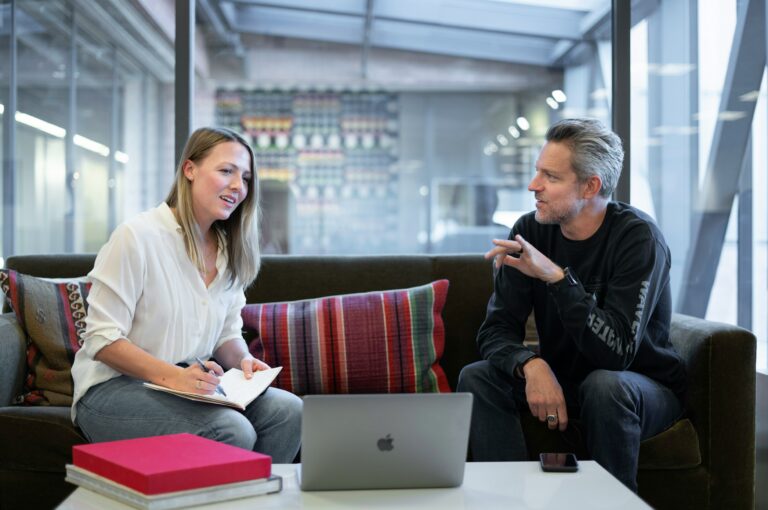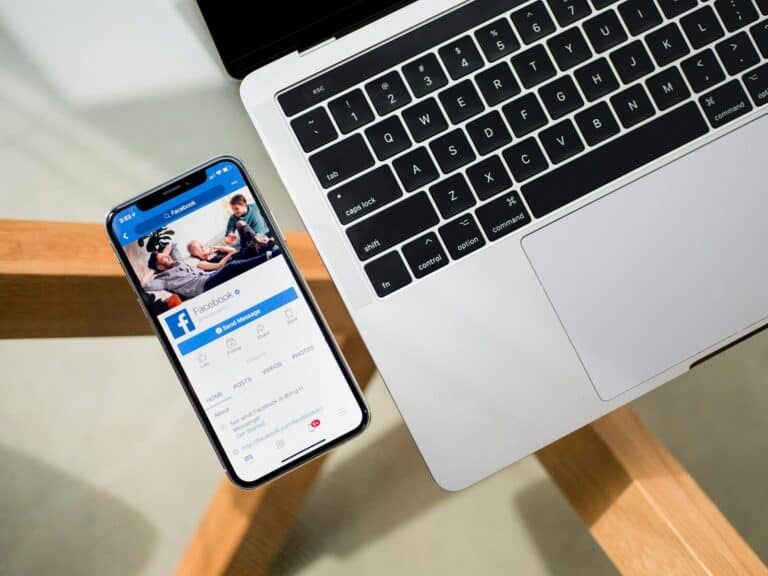Job hunting can be nerve-wracking.
And if that wasn’t enough, even if you get selected for an interview out of hundreds of applicants, that still won’t guarantee you the job.
The recruiters will constantly ask you questions like “What’s your biggest weakness?” and “What’s your biggest strength?” to test you.
But how do you even discuss your weaknesses without sounding excessively modest? And is there a way to talk about your strengths without bragging?
No wonder why these 2 are among the most dreaded questions during interviews.
Well, it’s your lucky day! Even though there is no one specific way to answer these two questions, there is a formula to all this and some best practices that you can follow.
That’s why we are here. This guide will help you prepare an original answer so that you’ll never have to struggle with these two questions ever again.
In this guide, we’ll cover:
- How to Answer “What Is Your Greatest Strength?” with 13+ Examples
- How to Answer “What Is Your Greatest Weakness?” with 12+ Examples
How to Answer “What Is Your Greatest Strength?”
Many people find this an extremely difficult question to answer.
That’s mainly because you don’t want to sound narcissistic and boastful, and especially because you don’t want your answer to be misinterpreted.
You can’t wing it. Take the time and prepare an answer before showing up at the interview.
To begin with, what they want to know is pretty obvious: they want to know what you are really good at. That can be anything from knowledge-based skills, to personality traits that have proven to be useful in your career so far.
Also, as much as the interviewer is interested in what you excel in, he/she also wants to see how you phrase the answer. The answer you give will show them how self-aware you are and that you know what your best attributes are.
Now that you know what the interviewer is looking for, let’s focus on how to answer the question in a way that will impress him/her.
The formula is quite simple:
- Focus on 1-2 relevant qualities. Your best bet is focusing on 1 quality (E.g. dedication) or 2 that are related to each other (E.g. artistic and innovative). These qualities should be relevant to the position you are applying for. Your chosen strength will help you work more effectively if you get hired.
- Don’t just list them! Don’t memorize a couple of adjectives and list them for the interviewer to hear. You want to prepare a well-thought-out answer that will impress the interviewer and show that you’re professional.
- Tell a STORY, instead! The way you choose to phrase your answer really matters, and that’s why we suggest going for a story-like answer that will support the strength you choose to talk about. Use this opportunity to give the interviewer a practical example of your key strength and how it has helped you succeed on a specific occasion. That will show the interviewer that you really own this specific quality and that you know how to apply your strengths in the real world and yield great results.
Still not sure how to prepare your answer?
Make sure to check out our detailed guide with more tips and great examples on how to answer “What Is Your Greatest Strength?”.
13+ Strengths for Job Interviews (+ Examples)
Now that you’re familiar with what is expected of you when answering the question, let’s take a look at some examples that will help you prepare your own answer:
- Multitasking
“One of my biggest strengths is that I am able to easily multi-task while still being focused on my tasks and without being distracted. That has proved to be very valuable especially because I’ve constantly had to effectively balance my academic life and my job in a fast-paced work environment like a marketing department. I believe this is the best quality to have when you’re required to work on different tasks simultaneously and meet all your deadlines while dealing with a lot of people. I would say that my ability to multitask has always kept me ahead of my projects, as I was always the only one to successfully finish every task within the deadline and still have some extra time to work on my own projects and school assignments.“
- Crisis management
“I would say that my main strength is crisis management. In my last job position, as an assistant planner for a fast-paced fashion retailer, I was tasked with managing and developing a high-performing team to come up with a working strategy and develop creative solutions to problems. That required a lot of planning ahead as well as dealing with last-minute problems that are bound to happen in a dynamic environment. For example, about 2 years ago, during a new store opening event, the team was understaffed and there were more guests attending than expected. However, I managed to convince a few acquaintances to help last-minute and was also able to get the catering company to provide more food and drinks for the guests, just in time for the event. I believe that my crisis management skills have greatly helped me achieve that, and I was quickly promoted to a senior planner position after 2 years of working as an assistant.”
- User Experience
“My biggest strength going into this job would be my thorough knowledge of UX. Many people can theorize about UX, but not many can both design the user experience and code the website. These skills have proved to be very useful in a project about 3 years ago, where I used my coding skills in HTML, CSS, and JavaScript to develop a better and more functional final product within the set deadline. I changed the placement and wording of all Call-to-Actions as well as optimized all images on the website to speed up the website’s loading time. That increased the website’s conversion rates and I got highly praised by my team leader”
Here’s a list of 10+ other strengths that you can use to answer “What is Your Greatest Strength?”:
- Creativity
- Empathetic nature
- Knowledge of Search Engine Optimization (SEO)
- Writing skills
- Agile Methodologies (Scrum)
- Data Analysis skills
- Communication skills
- Problem-solving skills
- Diligent work ethic
- Team-oriented
How to Answer “What Is Your Greatest Weakness?”
As much as the interviewer wants to know about your strengths, there is something else they are also very interested in: your weaknesses.
This specific question aims to show whether you are aware of your biggest weaknesses and if you know how to overcome them if necessary.
Remember, weaknesses make you a human in progress, and there’s no shame in knowing what you lack.
What’s important is that you can pinpoint your shortcomings and that you’re constantly working towards developing that specific skill that you lack.
How do you answer this question in a way that shows the interviewer that you’re making an effort towards overcoming your weaknesses?
It’s pretty simple:
- Focus on 1 relevant weakness. You don’t want to give them a whole list of weaknesses. Instead, focus on 1 specific characteristic that is relevant to the position that you’re applying for. The chosen weakness shouldn’t keep you from doing your job, and it’s something you’re constantly working to improve. Imagine that you’re applying for a business analyst’s position but you lack programming skills, which can be considered a shortcoming. However, it is not required to succeed in the job and it is something you can learn with time and practice.
- Show them how you’re working to improve. Make sure to show the recruiter a practical example of how you’re constantly working hard towards turning your weakness into a strength. You also want to let them know that you’re willing to learn and that the weakness won’t keep you from succeeding in doing your job if hired.
Still not clear on how to prepare a great answer to “What is Your Biggest Weakness?” Check out our detailed guide rich with best practices and proper tips on how to answer.
12+ Weaknesses for Job Interviews (+ Examples)
Now, let’s take a look at some sample answers that will help you prepare your own:
- Time-management
“I would definitely say that my biggest weakness is time-management. I constantly work hard to achieve my vision, but it can definitely become too overwhelming when I have a deadline I have to meet. As a copywriter, you always have a workload that you strive to manage, and that within a tight deadline, several clients want their pieces finished at the same time, and I am also trying to fit in some extra online courses in there as well. It’s difficult to manage all at the same time, and that became especially clear last year when I was behind on 2 articles and I had many assignments due on the same day. I ended up submitting one poorly-written piece that I had to rewrite. Since then, I have constantly been working to improve my time-management skills by taking on fewer projects and online courses. I now have the opportunity to choose my own schedule and projects and that has worked well to my advantage. I’ve also found that working on one thing at a time helps me meet my deadlines much more effectively.”
- Lack of knowledge of social media platforms
“As an enthusiastic leadership trainer with many years of experience, I believe that my biggest weakness is my lack of knowledge of social media platforms. That comes in part due to my age, as I see my younger and much more computer savvy coworkers implementing that knowledge in their training courses. They constantly make use of different social media platforms to personalize learning and to encourage learners to connect to others doing the same thing. That has proven to be much more effective in facilitating the learning process, especially when the classes’ performance is taken into consideration. That’s why I believe that making use of different social media platforms would broaden my skill set even more. I am well aware that the new generations are becoming more and more computer literate, and it’s only fair that I try to do the same. I am constantly working to become more knowledgeable on these platforms and my nieces are certainly helping me do so by explaining everything to me in simpler terms. And feel free to follow me on Instagram and Twitter.”
- Public speaking
“I’m naturally shy and public speaking has always been something that I hated doing in high-school. I remember avoiding it as even the simplest in-class presentations made me super nervous. An internship I did last summer demanded that I worked with a big team of developers and we needed to constantly communicate our ideas in front of everyone, which was my worst nightmare. However, that’s where I learned that if I practiced enough, I’d get better at it. I’ve found that working in teams and being able to effectively communicate ideas is important in any work environment. I decided to join an improv class a month ago, and even though it has been nerve-wracking at times, I can definitely see that I am improving a lot.”
Here’s a list of 9+ more examples that you can use to answer the question:
- People pleasing
- Easily distracted
- Impulsivity
- Lack of creativity
- Inflexibility
- Self-critical
- Indecisiveness
- Controlling
- Procrastination
Key Takeaways
We know how difficult answering “What are Your Biggest Weaknesses?” and “What Are Your Biggest Strengths?” can really be.
And it’s understandable that you wouldn’t look forward to answering the 2 questions, especially because sometimes pinpointing your own strengths and weaknesses can be impossible as it is.
But by now you should be familiar with the best ways to structure great answers for the questions.
Let’s take a look at some last tips before going our separate ways:
- Avoid going in unprepared! It’s almost guaranteed that the interviewers will ask at least one of the questions, if not both. Knowing that, make sure to be cautious and prepare an answer before showing up for the interview.
- Focus on the most relevant strengths! Make sure that what you choose to talk about is relevant to the position/company you’re applying for. That being said, your greatest strength should be a quality that will help you perform better if hired.
- Pick the right weakness! You don’t want to pick something that will have the interviewer thinking that you’re incapable of doing your job if hired. Instead, you need to focus on a quality that won’t stop you from performing well, and that you’re constantly trying to improve.
- Give practical examples of your skills! A good story that supports your answer can be crucial when you’re trying to convince the interviewers of your potential. A good example will also make you more memorable while listing a bunch of qualities, will not.
Make sure to keep all we talked about in mind when preparing your answer and you’ll be one step closer to getting hired.
Now, you’re good to go!
Good luck!









